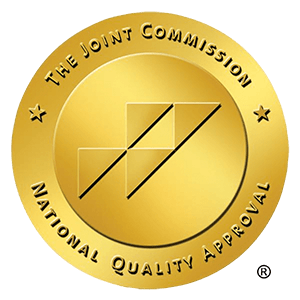Recovery Is Possible
Core Recovery is here to help you navigate this turbulent time. Our caring team of board-certified therapists use evidence-based techniques for assessment, diagnosis, and treatment.
What Can Depression Look Like?
Depression in teenagers can show symptoms that look like puberty.
- Feelings of sadness/hopelessness
- Irritability
- Frequent crying
- Loss of interest in activities
- Feelings of worthlessness and guilt
- Difficulty concentrating
- Changes in eating/sleeping habits
There are many more symptoms that a teenager can express. Communicating with your teenager and identifying behavioral and emotional symptoms can help you prevent problems in the future.
What Can Cause Depression?
Depression in teenagers can be caused by various factors such as:
- Hormones
- Early Childhood Trauma
- Genetics
- Learned Patterns of Negativity
All these factors are no one’s fault, and you and your teen are not to blame. There’s no one catalyst for depression, and you should keep that in mind when communicating with your teenager.
The common response is to remove them from friend groups and situations you believe are causing their depression, but the answer may not be that simple. Communicating with your teenager about their problems may help you and your teen find a solution.
Get Your Loved One the Help They Need
At Core Recovery, you’ll be treated with the utmost respect in an atmosphere that focuses solely on your recovery, using evidence-based techniques for assessment diagnosis and treatment. Our highly-skilled team works together to build a comprehensive treatment plan to make you feel better.
Discussing Hard Topics with Your Teen
Properly communicating with your teenager appears intimidating, but if you follow these simple tips, talking with your teenager will be an easy task.
- Be sure to listen, validate their feelings and be observant. Don’t distract yourself with housework or other children.
- Ensure that you actually listen. Be engaged in the conversation and ask questions when you don’t understand something.
- Resist the urge to judge what your teenager is talking about. Be someone for your teen to listen to, not someone that your teen feels judged around.
- Remember that you were their age too. While each generation has different struggles, you can relate to their emotional struggles.
Extra Help for Your Teen
Sometimes talking with your teenager can be an intimidating task. However, if you make yourself an easy person for your teen to talk to, communication will be simpler than you think.
Be Gentle, but Persistent, and Avoid Placing Blame
Talking about depression is not only hard for you, but is also hard for your teenager. They may have a hard time expressing how they are feeling. Don’t let them evade the conversation though. Emphasize how concerned you are for them and how willing you are to listen.
As a parent, it’s natural to want to figure out what’s causing your teenager’s depression. Certain assumptions can make you feel like you can cure their depression. However, often depression isn’t caused by just one problem. There can be a multitude of issues involved which may not be easily solved.
Family Involvement
Core Recovery believes family plays an essential role in our patients’ treatment and can lead to a more rewarding and successful outcome. A parent, guardian, spouse, or partner is encouraged to attend a family systems therapy session once a week with their loved one. The Family Systems Program is committed to strengthening family relationships, educating the family on addiction, mental health and the support that exists for the family themselves. We believe that on-going support during and after treatment is necessary for our patients’ redirection of their lives and sobriety.


